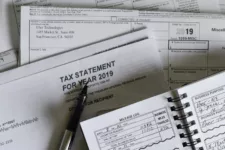When you manage your own business, you should make sure that you know how to manage your sales taxes properly. You must know how to collect and pay these taxes so that you can remain in good standing with the state. Use the tips below to collect, manage, and pay sales taxes as needed. If a company does not have all these things handled, it is difficult to avoid issues with late or missed sales tax payments.
1. Do You Need To Collect Sales Tax?
Your sales tax filing is dependent on how much sales tax the state requires you to charge. You may live and work in a state where you are not required to collect sales tax. However, you may have an office or branch that is in another state that requires you to pay sales tax. You will find that this requires a bit of organization.
If you are selling online, you also need to know if you are required to collect sales taxes. Your company may need to pay sales tax when you are selling over a certain amount every year, or you may have so many transactions that you need to charge sales tax.
2. How Do You Collect Sales Taxes?
You need to ensure that you have a mechanism in place to collect sales taxes. You should have an online sales platform that will calculate sales tax, and you also need a register system in the building that will calculate sales tax for you.
You may be required to charge a certain amount of sales tax for certain items, and you must have a system in place that will calculate those fees on your behalf. Once you have collected those taxes, you need to move all that money to an account for your sales tax payments.
Most modern businesses have an accounting program that can calculate their taxes, move that money to the right account, and build reports to show how much tax should be paid. You do not want to do these calculations by hand.
3. Register With The State To Pay Sales Tax
You need to register with the state to pay sales tax. The state needs to know that you will be paying your sales tax, and they can anticipate that you will be paying sales tax every month, every quarter, or every year. The state will record these payments, and you can show that you have made the payments properly according to your sales records.
You must retain your records so that you do not have any trouble proving that you have paid the proper amount of sales tax. Many companies do not pay sales taxes properly, and they do not have records to back up their findings. You want to know the exact amount you should pay, and you should have a portal that allows you to make those payments online.
4. Find Any Exempt Items You Sell
You must also make sure that you do not sell any exempt items. When you are charging sales tax, you need to remove any exempt items from your list. The sales tax filing will show that you sold a certain number of items at a certain price, and those items will be coded according to the state’s standards. The state will publish a list of all the things that should be taxed, and you should not submit those items with your sales tax filing.
If you notice that you are charging sales tax for exempt items, you should offer your customers a refund whenever possible. Check the state’s log of tax-exempt items at least once a quarter to ensure that you have not missed anything.
5. Send Reports To The State With Your Tax Payments
You should send the reports with your tax payments. Every state is different. Some states want you to pay sales tax every year. Some states want you to pay sales tax every quarter, and some will allow you to set up a special payment plan. You simply need to know when tax payments are due, if you can defer them, and who to contact with the state if you have a problem.
When you are collecting sales tax from your customers, you need to know how to charge these taxes, collect them, and log them. You should ensure that you are charging the proper rate, and you also need to know if you sell any exempt items. Some companies do not handle their sales taxes properly, and they will be cited by the state for not collecting taxes properly. You might also manage a company that works in multiple states. One state charges sales tax, one may not, or the sales tax rates might be different. Your careful attention to this matter will help your company operate legally.








